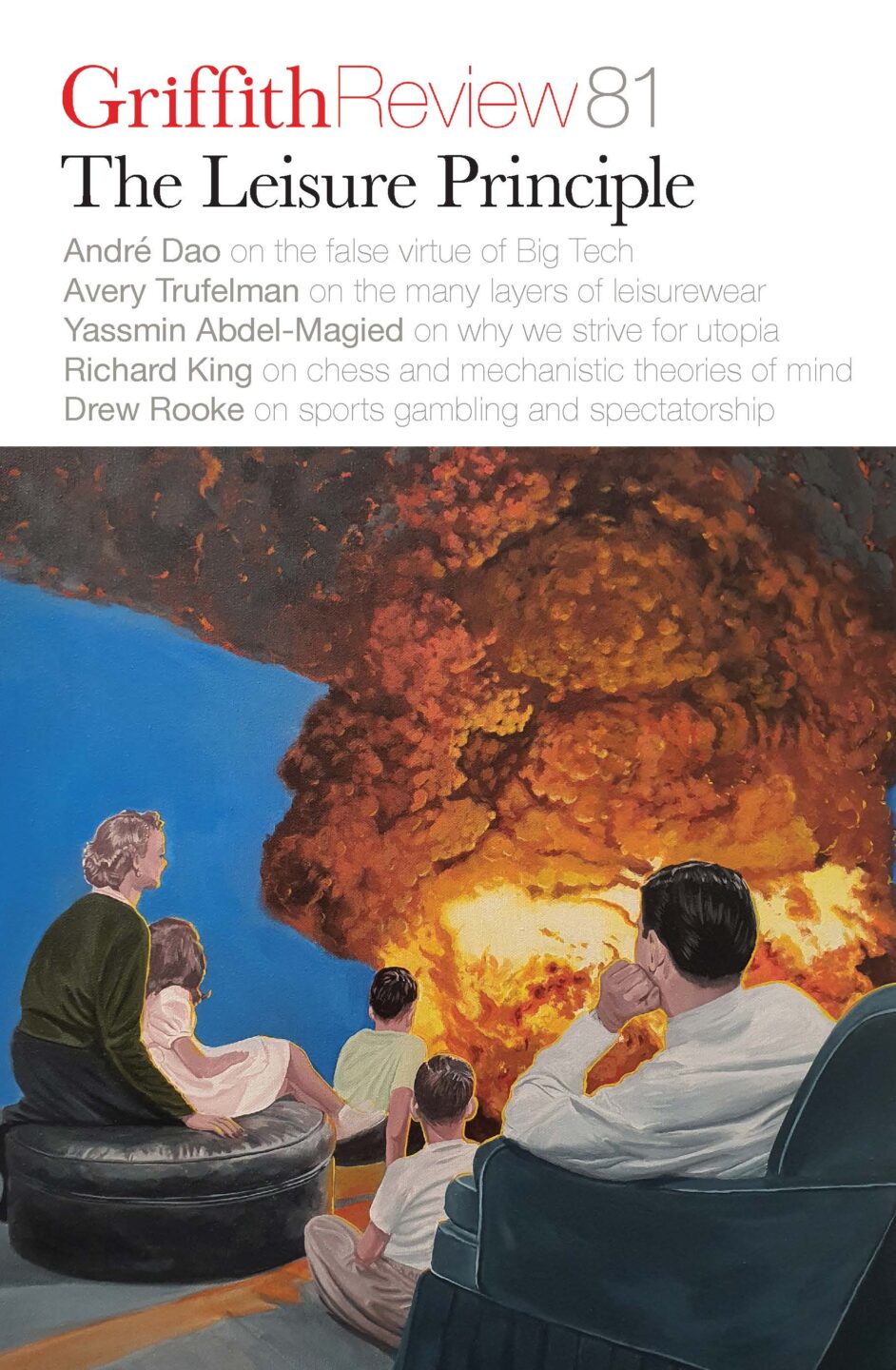Featured in

- Published 20230801
- ISBN: 978-1-922212-86-3
- Extent: 200pp
- Paperback (234 x 153mm), eBook

Already a subscriber? Sign in here
If you are an educator or student wishing to access content for study purposes please contact us at griffithreview@griffith.edu.au
Share article
About the author

Willo Drummond
Willo Drummond’s debut collection, Moon Wrasse, is published by Puncher & Wattmann. She is a researcher, sessional lecturer and supervisor in creative writing who...
More from this edition

At the subway station
Poetry In a world of cunning shadesI’m the only sleuth. I hop on the train bound for a futureI’ve been hired to investigate. For a moment all...

The geography of respect
Non-fictionStarting in 2019, Parks Victoria closed or restricted access for climbers to much of Gariwerd-Grampians while it assessed cultural heritage and worked with Traditional Owners and conservation experts to develop the Greater Gariwerd Landscape Management Plan (GGLMP). These closures drew strong reactions from many climbers. They saw Parks Victoria’s actions as impinging on their rights, and its apparent focus on climbing as a risk to cultural heritage and environmental integrity as overblown.

Louche
Poetry On the bleached beachof café seats, he’s drenched, hairslicked, tarnished as tinespulled up from a shipwreck, savea naughty part:silver forelock a hookswaying as he...